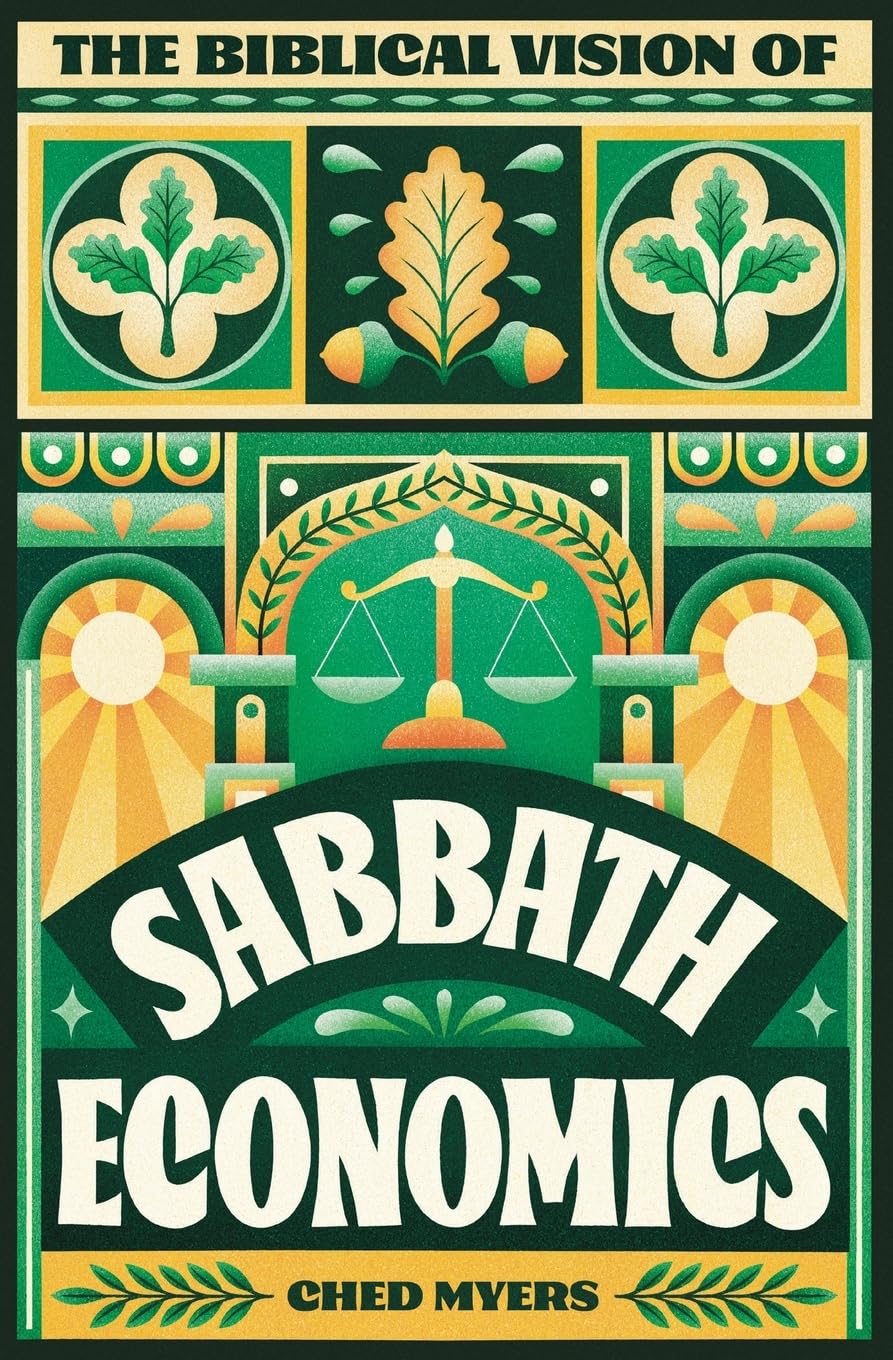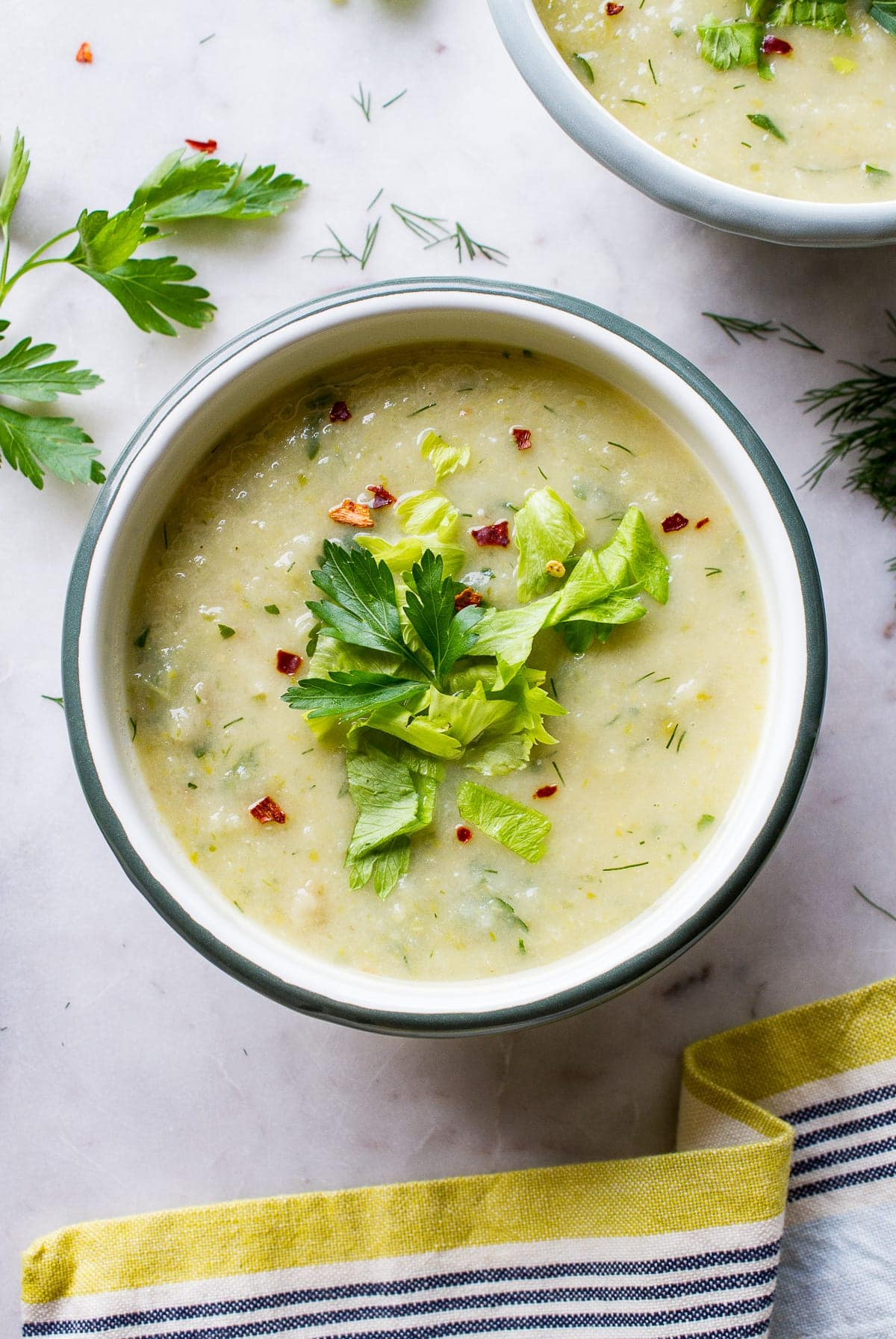Zero Waste Hand Wash: Clean Hands, Clean Planet
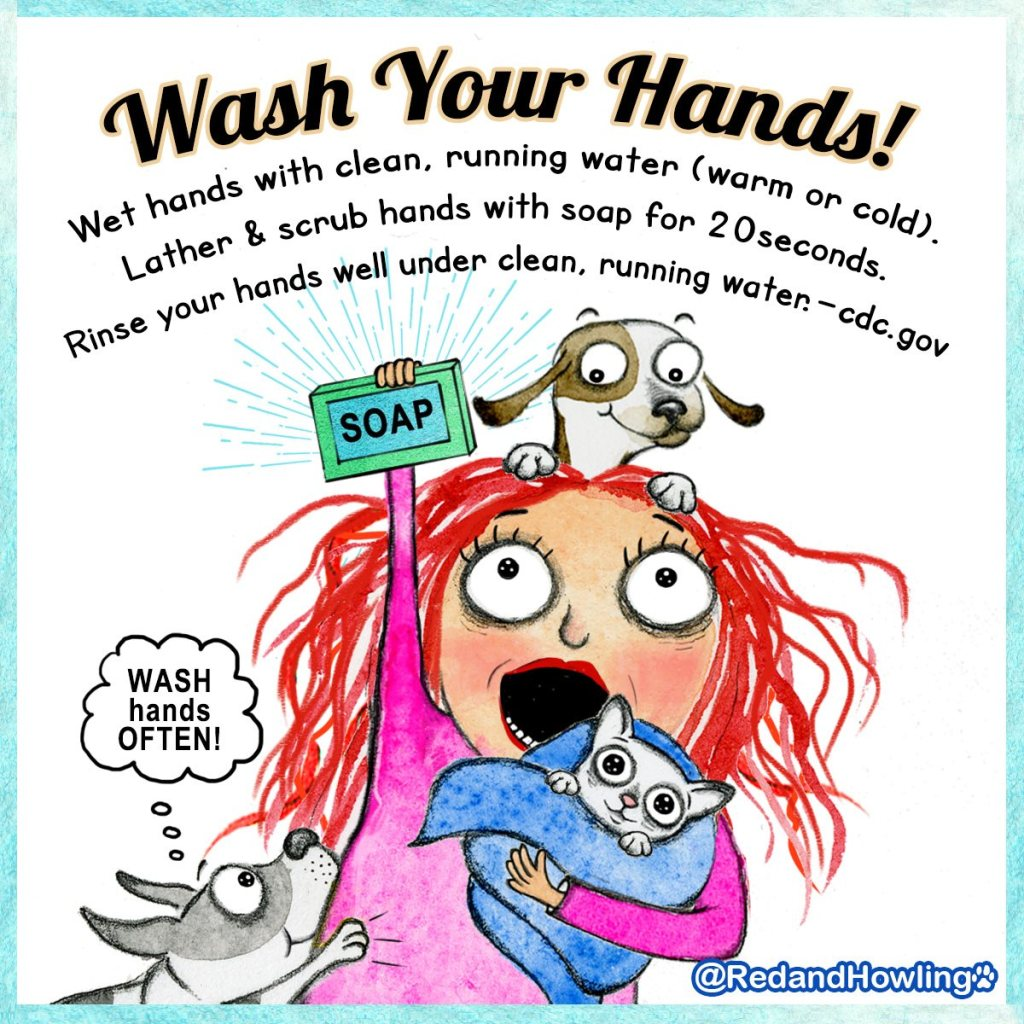
Proper handwashing isn’t about a giant blob of soap. A small amount, paired with technique, does the trick. Scrub all surfaces – backs, palms, between fingers, nails – for at least 20 seconds. Rinse thoroughly and pat dry with a reusable towel.
Key steps:
- Wet hands with water.
- Apply a pea-sized bit of hand wash.
- Lather well, getting every part of your hands.
- Rinse off completely.
- Use a cloth hand towel or air dry.
Use unscented hand washes for pregnancy/nursing and affected medical conditions. Keep scented soaps away from babies and pets (due to citrus oils).
What Makes a Hand Wash zero waste?
A zero waste product creates almost no trash. Packaging is recyclable, reusable or compostable. Many times, brands offer refill systems or bulk options to keep bottles and pumps out of landfills. With hand washes and sanitisers, this means skipping single-use plastics and shrink wrap for glass bottles, metal tins, or refill pouches.
For a product to count as vegan, it must be free from all animal products and not tested on animals. Clear vegan certification and Cruelty Free International’s Leaping Bunny, confirms this promise.
Along with reducing plastic, zero waste and vegan brands use green energy, carbon-offset shipping, and ethical sourcing. The result is hand hygiene with a much smaller footprint.
Ingredients to Choose (and avoid)
It’s easy to assume all hand washes and sanitisers are vegan, but many use hidden animal by-products. Here’s what you need to know.
Vegan-friendly components include:
- Coconut-based cleansers
- Aloe vera for skin soothing
- Vegetable glycerine for moisture
- Plant-based alcohols (from wheat, corn, or sugar beet)
- Essential oils for scent instead of synthetic fragrances
Animal-based or problematic ingredients to watch out for:
- Glycerine (if source isn’t listed, as it can be animal-derived)
- Honey or beeswax (common in “natural” soaps)
- Lanolin (from sheep’s wool)
- Tallow (animal fat, often in bar soaps)
- Carmine (red dye from insects)
- Silk protein or “sericin”
The Role of Packaging in Soap
Packaging is often the biggest culprit for waste. Some sustainable swaps are simple. Bar soap wrapped in paper replaces plastic bottles. Refillable bottles mean you only buy packaging once and top up as needed.
You’ll see eco-friendly hand washes using:
- Glass dispensers and aluminium pumps
- Compostable wrappers on solid soap bars
- Refill stations at zero waste stores
- Bulk buying options for homes or businesses
You can leave caps on plastic bottles for recycling. Machines are able to sort and separate them, so you don’t have to.
Green People Organic Hand Washes
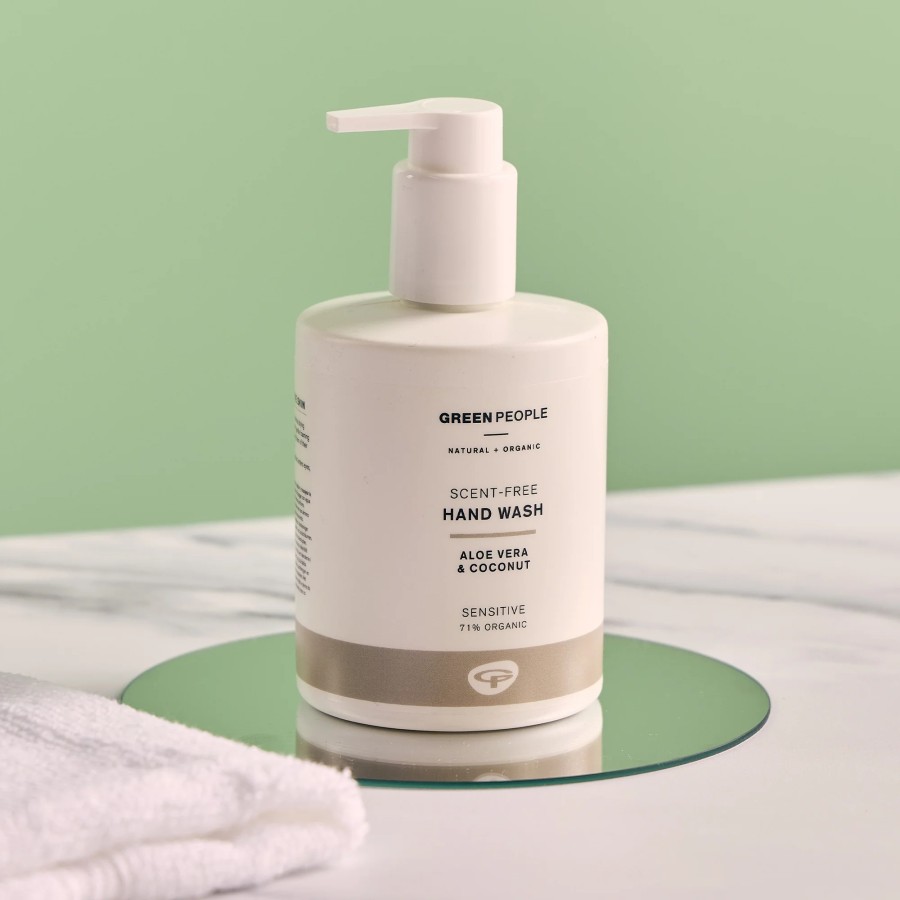
Green People offers a small range of hand washes (in easy-to-recycle sugar cane packaging) including an unscented version and one with manuka oil.
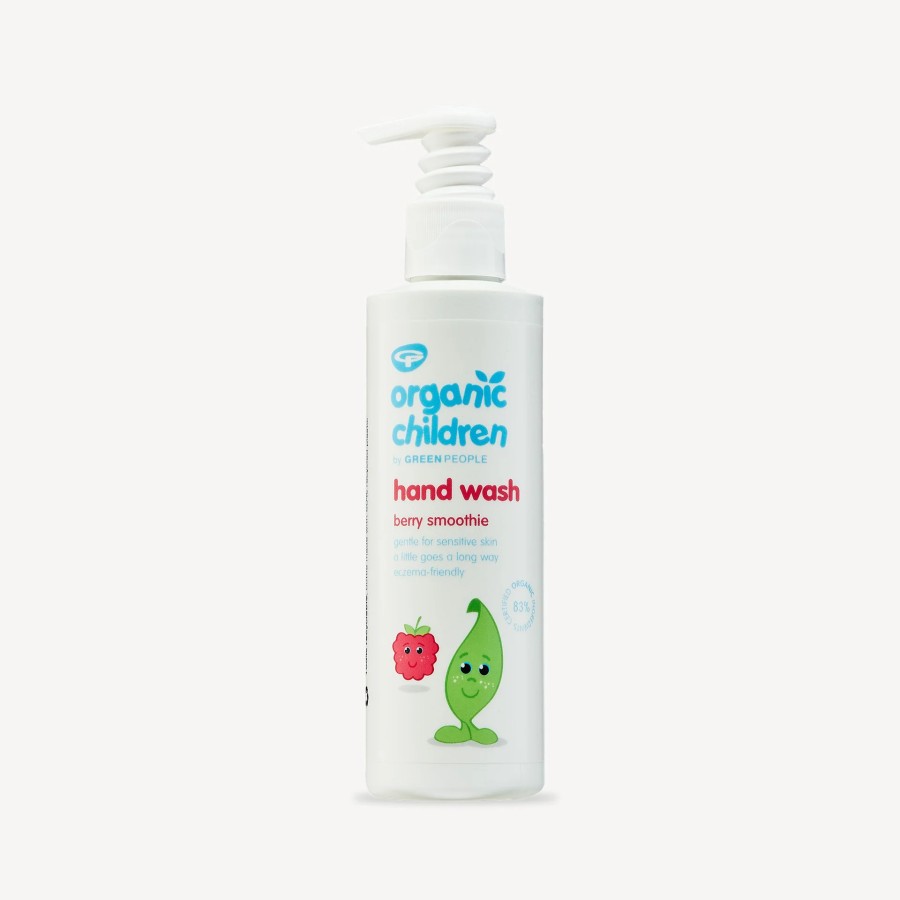
There is also a version for children, an instant-foaming citrus hand wash with larch tree extract and tea tree oil (also good to wipe-clean sticky faces, toys and highchairs).
Miniml (refillable hand soaps with Yorkshire water)

Miniml is a super household brand that offers natural hand soaps with natural scents, sold in refillable packs. You can refill them in stores, or use the QR code to send off for refilling. Choose from:
- Cucumber & Aloe Vera
- Lime, Basil & Mandarin
- Pink Grapefruit & Aloe Vera
- Sweet Clementine (anti-bacterial)
Greenscents (soaps & sanitisers in returnable bottles)

Greenscents offers natural castile soaps (no palm oil) and sanitisers in glass bottles (handle with care with wet hands) that are sent back for refilling, if you don’t recycle on). Choose from unscented or natural scents.
You can also use these for household cleaning and laundry (unscented for pregnancy/nursing, babies and pets – note the sanitiser is only citrus-scented so avoid near pets especially).
Bio D Fragrance-Free Hand Wash (or Sanitiser)
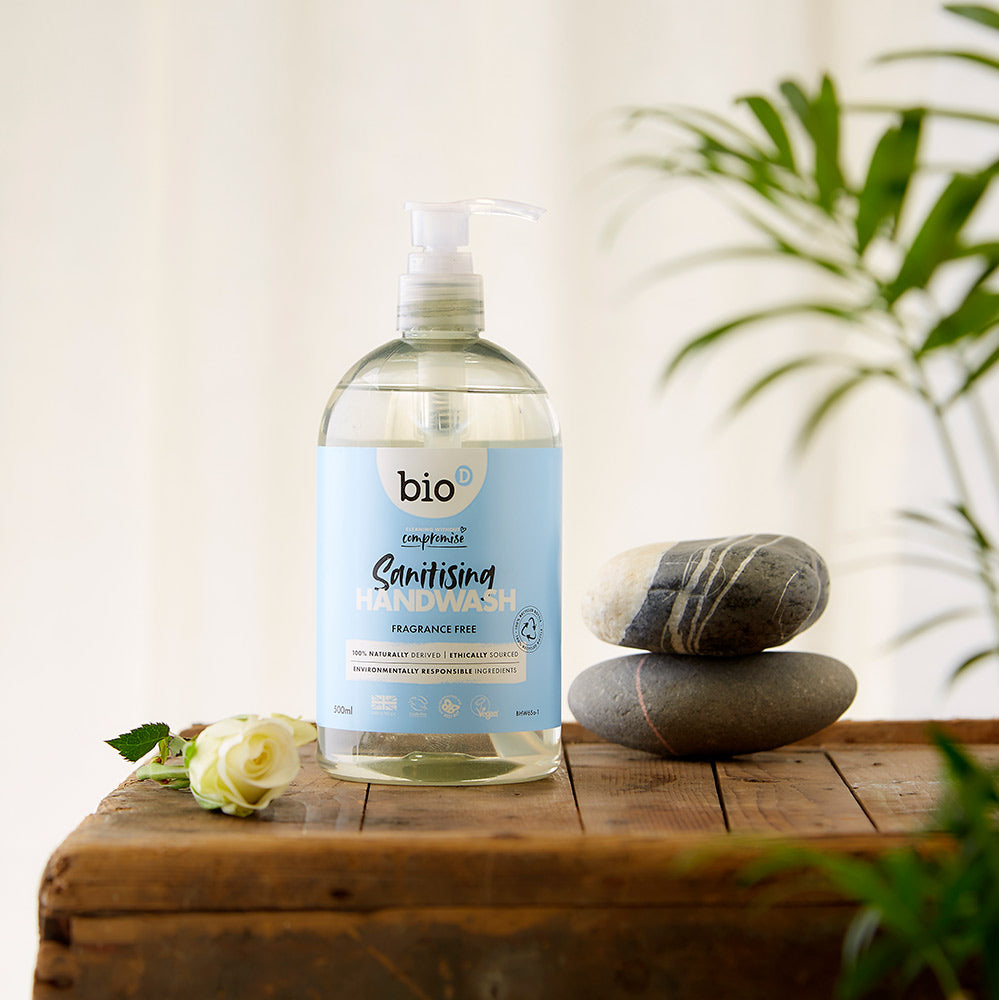
Bio D Fragrance-Free Hand Wash neutralises 99.9% of harmful bacteria, and is approved by Allergy UK. Safe for septic tanks, it’s made using solar power and sold in easy-to-recycle bottles. Just pump onto your hands, wash under warm water for 15 seconds, and rinse well.
This hand wash is also available in a 5 litre and 20 litre version for commercial use. You can return the 20 litre versions in pairs with free postage, as they are too large to recycle domestically. You can also buy a pump or tap for the container, making dispensing quick and easy.
Bio-D All-Purpose Hand Sanitiser Spray
Bio-D All-Purpose Hand Sanitiser Spray (also in 5 litre containers for commercial use) is a fast-acting biodegradable spray, great for tackling greasy kitchen jobs and can be used all over the home, neutralising 99.9% of harmful bacteria.
It’s free from fragrance but does contain essential oils, so keep away from pregnant/nursing women, babies and pets.
This spray is vegan and not tested on animals, and sold in refill sizes (sold in post-consumer recycled plastic bottles). It’s also suitable for septic tanks.
Made in the UK with solar power, just shake and adjust the nozzle to spray onto surfaces, leave for 15 seconds, then wipe off with a damp cloth. For tough marks and grime, leave on for 2 minutes.
This spray meets disinfectant standards for bacteria and viruses, conforming to BS EN 1276 standards, making it a reliable choice for a clean hygienic home or office. It can be used for cleaning:
- Countertops
- Sinks
- Bathroom tiles
The 500ml bottle is suitable for everyday cleaning, and should last a few weeks, depending on usage frequency and surface area covered.
Delphis Eco Anti-Bacterial Hand Soap

Delphis Eco Hand Soap is from a highly respected company that serves the commercial world with nontoxic alternatives to cleaning products.
This soap is ideal to sanitise and disinfect hands in the bathroom, killing most known germs and bacteria. It also leaves a pleasant smell on the hands, and biodegrades after use.
The mild soap can be used daily, and contains added moisturisers to leave skin soft. Safe to use in the kitchen, as it does not taint food.
Just apply a small amount onto the hands, massage into palms and cuticles, then rinse. Also sold with a 5 litre refill, it’s vegan-friendly in a recycled plastic bottle, that is easily recycled on.


